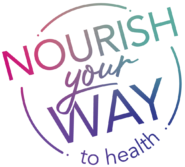
Guess what? There are, of course, some diets that are better than others. Believe it or not, there are hundreds to choose from. The best diets are non-inflammatory and include foods that are nutrient-rich. We are all bio-individuals and what works for one person doesn’t work for another. Some people process animal protein well and others may not. Some do well on a vegan diet, and some don’t because they may not get enough protein, amino acids, or B vitamins which means that many need to supplement. What’s important is that you get all the nutrients your body needs.
Get in the right stuff!
What nutrients do I need, you may ask? Well, here it is. As humans we need water, protein, starch (from veggies), sugar (from veggies and fruit), carbohydrates, and fiber—vitamins and minerals too. Many diets obtain the essentials. There are some diets that include all of these but are not sustainable because they offer too much of one thing but too little of another.
Be careful of some diets
Let me give you an example of what I’m talking about. The keto (ketosis) diet is not sustainable for a long time. Meaning, after a few months, it’s great for losing weight or giving your body whole foods for a short time, but in the long run, your body will not like this particular diet after a while because it has very high amounts of fats and little sugar and carbs from veggies and fruit. Here is an excerpt from one of Dave Asprey’s books, Bulletproof.
“When I began studying ketosis, I wanted to see what would happen if I entered a ketogenic state and stuck with it indefinitely—or for three months, as was the case for me. Guess what? It wasn’t good. The Inuit people (eskimos) subsist primarily on protein and huge amounts of fat. The live on delicacies like whale blubber and seal jerky. And good for them; they are genetically predisposed to function this way as they’ve evolved with this diet for centuries . . . and they live on packed snow. We, in everyday America, however, have not. After eating nothing but protein and ridiculous amounts of fats for three months, by body started malfunctioning. My sleep quality went away. My eyes and sinuses where super dry all the time. I started getting headaches. Because I didn’t have enough carbohydrates to manufacture the mucus that lines a healthy stomach, I developed food allergies to my favorite foods as soon as I added them back in.”
Find the diet that's right for you
If you’ve read my story, being diagnosed with multiple sclerosis in 2015, I started my path on a paleo-based diet and it’s worked wonders for me. I get most of the essential nutrients I need. Although, I still take supplements. The extra supplements I take are vitamin D-3, magnesium, a good multi-vitamin (in case I miss a nutrient throughout the day), omega-3, and a probiotic (if I haven’t had fermented foods for more than 2-3 days). If I haven’t had any grass-fed beef for more than 5 days, I take a liver supplement (from grass-feed cows)—liver from this kind of animal has loads of nutrients.
If you ate liver from grass-fed cows, look what you are getting!
| VITAMINS | % Daily Value | |
|---|---|---|
| Vitamin A Vitamin A IU Folate Niacin Riboflavin Thiamine Vitamin B6 Vitamin B12 Vitamin C Vitamin D Vitamin D Vitamin D3 Vitamin E Vitamin K | 4968μg 16898IU 290μg 13.2mg 2.8mg 0.2mg 1mg 59.3μg 1.3mg 1.2μg 49IU 1.2μg 0.4mg 3.1μg | 552% 870% 73% 66% 163% 13% 84% 2471% 3% 8% – – 2% 3% |
| MINERALS | ||
| Calcium Iron Magnesium Phosphorus Zinc Copper Manganese Selenium Choline | 5mg 4.9mg 18mg 387mg 4mg 9.8mg 0.3mg 39.7μg 333.3mg | 1% 62% 6% 39% 27% 488% 16% 57% 61% |
Organic animal organs are nutrient dense!
I wish I liked the taste of animal organs but I can’t stomach them, that’s why I get my nutrients from supplements or other foods.
Here are a few other nutrient dense foods
Almonds: Protein, fiber, magnesium and vitamin E
Avocados: Mono-unsaturated fatty acids, fiber, potassium, and folate
Blueberries: Antioxidants and a low-glycemic index
Broccoli: Vitamins A, C, K,and folic acid
Coconut oil: MCT (medium-chain triglyceride) oil which lowers bad LDL cholesterol levels
Collard greens: Vitamins A, K, and folate
Dark chocolate: Antioxidants from the high cacao content (at least 70%)
Eggs (from pasture-raised chickens): Iron, protein, vitamins, omega-3, and amino acids
Flaxseed: Omega-3, vitamins, fiber, and antioxidants
Garlic: Vitamins, antioxidants, and manganese
Ginger: Polyphenols
Green tea (including matcha): Polyphenols (antioxidant) and alkaloids
Hemp hearts (or hemp seeds): Protein, healthy fats, amino acids, vitamin E, and minerals
Kale: Vitamins A, C, and K, manganese, calcium, potassium, fiber, and antioxidants
Kiwi fruit: Fiber, folate, vitamin C, and other vitamins/minerals
Olive oil: Mono-unsaturated fatty acids and antioxidants
Pomegranate: Antioxidants, polyphenols, fiber, and vitamins
Pumpkin: Fiber, vitamins A and C
Quinoa: Protein, potassium, iron, fiber, and antioxidants
Salmon: Omega-3, selenium, and B vitamins
Seaweed: Fiber, polyphenols, carotenoids, B vitamins, and iodine
Sauerkraut: Enzymes, vitamins and beneficial bacteria
Spinach: Iron, folate, vitamins and A and K
Sweet potatoes: Potassium, fiber, vitamins C and B6, manganese and copper
Turmeric: Antioxidants
Walnuts: Protein, antioxidants, and omega-3
Watercress: Vitamins A and K, antioxidants
In summary, you need to find foods that are nutritious and that you ENJOY! What foods make you feel good? What does your family like that’s full of nutrition? What snacks do you love and give you burst of energy and satisfaction? Deep down inside, you know!
I hope you enjoyed reading!
Adrienne
xo
Lots of nutrient-rich foods in this cookbook! These foods helped me heal and brought me joy.

